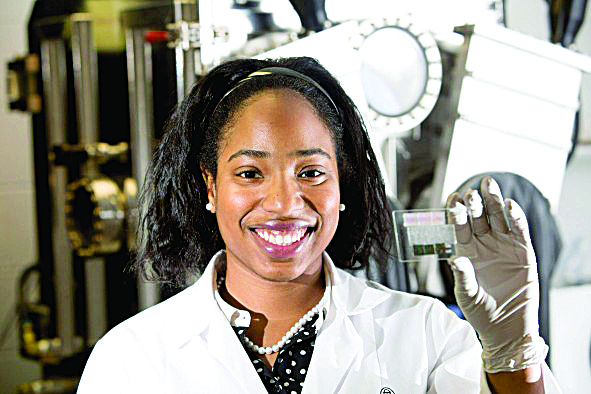
Whitney Ingram’s interest in science started as a girl. This month, she becomes the first African-American woman to earn a doctorate in physics at UGA — and she wants other young girls to do the same. “I hope I can encourage girls to pursue the sciences no matter what might hold them down,” she said. “It’s fulfilling to go after something you really like. Go after what you love.”
In particular, Ingram wants to see the number of minorities and women working in sciences grow. “There are not a lot of black women in physics,” she said. “There are recorded data that show there are less than 150 black females — living or deceased — in physics. I want people to know that because it’s a small number, pitifully small.
“You look at the world differently when you apply physics,” she said. “I like the idea of breaking down what you see and really thinking about it.” Ingram entered UGA as a freshman in 2007 and changed her major to physics early on, saying she “[felt dedicated] to stick with something I was passionate about.” After getting her bachelor’s degree in 2011, she began her doctoral program.
Ingram works in nanotechnology and its applications in cloaking and sensors. For example, one project she worked on involved metamaterials that can be used as sensors for glucose and other molecules.
During her time at UGA, Ingram earned several scholarships and fellowships, attended eight conferences throughout her academic career, and authored or coauthored 14 studies for publication. Additionally, Ingram was chosen as part of a national competition to be one of 65 students to represent the U.S. delegation at the Annual Nobel Laureate Conference in Lindau, Germany, in 2015, where she had the opportunity to meet Nobel Laureates in physics, chemistry, physiology, peace and literature.
She’s exploring post-doctoral research positions after graduation, but also hopes to find time to travel and pursue other hobbies in addition to finding ways to mentor those with an interest in science. “Because you have to look at things differently, I think it’s good to never approach something from just one direction,” she said.
